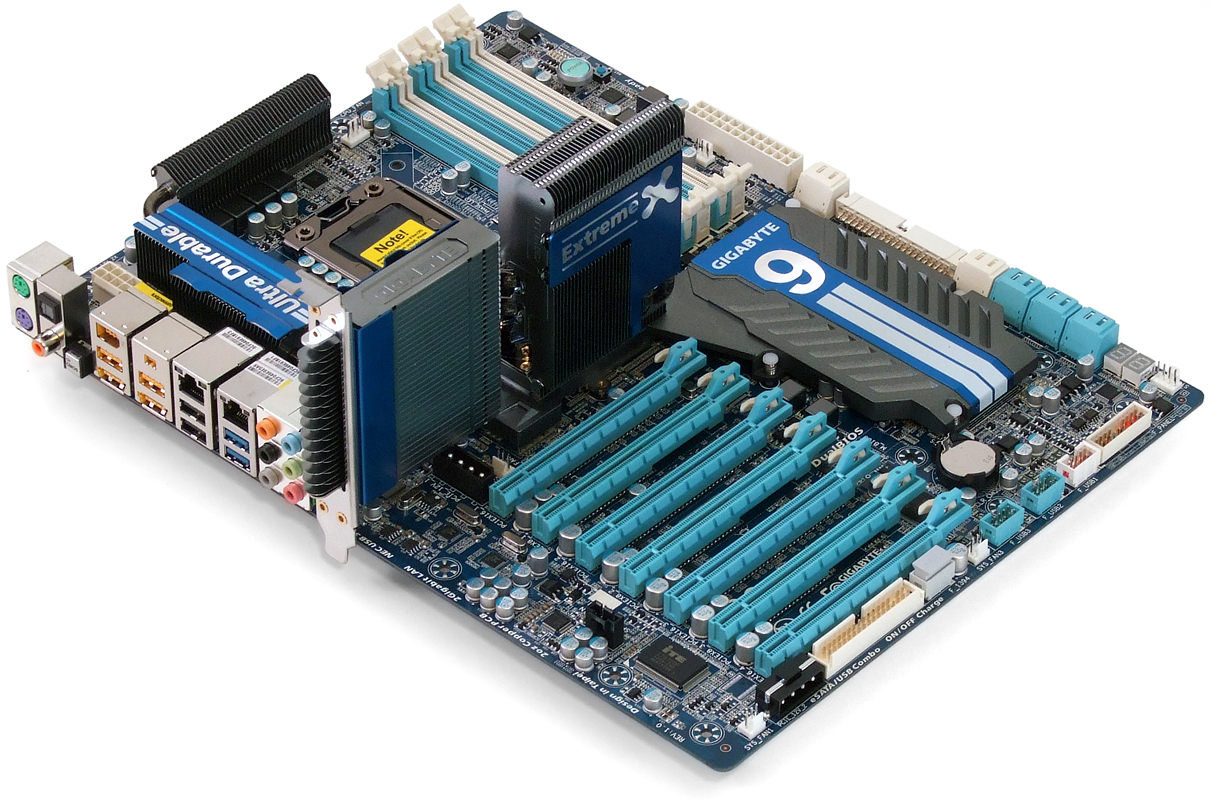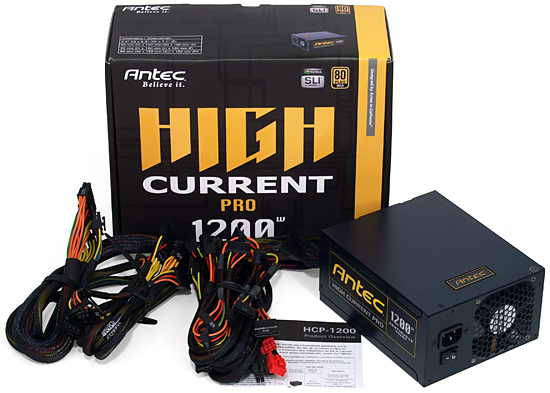Four 10-Slot Cases For Four-Way SLI, Tested And Reviewed
Extra space for cooling, controllers, and add-in cards makes XL-ATX the preferred solution for extreme system builders. Today, we follow up our picture story by testing four 10-slot cases that support XL-ATX and four-way SLI (with room to spare).
Test Settings
| Test System Configuration | |
|---|---|
| CPU | Intel Core i7-980X Extreme: LGA 1366, 3.33 GHz, 12 MB Shared L3 Cache Overclocked to 4.00 GHz (40 x 100 MHz), 1.30 V |
| CPU Cooler | Rosewill Fort120 |
| Motherboard | Gigabyte GA-X58A-UD9: Intel X58 Express Chipset, LGA 1366, BIOS F3 (05/28/2010) |
| RAM | Kingston KHX16000D3ULT1K3/6GX (6 GB), DDR3-2000 at DDR3-1333 CAS 7-7-7-20 |
| Graphics | 4 x GeForce GTX 580: 772 MHz GPU, GDDR5-4008, SLI |
| Hard Drive | Western Digital Velociraptor WD3000HLFS, 300 GB, 10 000 RPM, SATA 3Gb/s, 16 MB cache |
| Sound | Integrated HD Audio |
| Network | Integrated Gigabit Networking |
| Power | Antec High Current Pro HCP-1200 ATX12V v2.3, EPS12V, 80 PLUS Gold |
| Software | |
| OS | Microsoft Windows 7 Ultimate x64 |
| Graphics | Nvidia GeForce 280.26 WHQL |
| Chipset | Intel INF 9.2.0.1019 |
Gigabyte’s X58A-UD9 provides the top-end CPU and four-way SLI support we needed to fully evaluate each case’s cooling and noise-blocking performance. A lack of front-panel USB 3.0 support is its only weakness, though the company and several competitors are currently launching newer boards to address that issue.
The Antec High Current Pro HCP-1200’s eight 30 A, 12 V rails provide ample power for our four GeForce GTX 580 graphics cards and overclocked Core i7-980X CPU.
| Benchmark Configuration | |
|---|---|
| Prime95 v25.8 | 64-bit executable, Small FFTs, Seven-threads |
| 3DMark 11 | Version: 1.0.1.0, Extreme Preset, Graphics Test 1, Looped |
| RealTemp 3.40 | Average of maximum core readings at full CPU load |
| Galaxy CM-140 SPL Meter | Tested at 1/4 m, corrected to 1 m (-12 db), dB(A) weighting |
Get Tom's Hardware's best news and in-depth reviews, straight to your inbox.
Current page: Test Settings
Prev Page Building With The Thermaltake Armor+ Next Page Heat, Noise, And Heat Vs. Noise-
de5_Roy damn those cases look huge, in a good way.Reply
i am pretty sure i could live in the top apartment compartment of the azza case. it has in built cooling, water supply if one is using water cooling, a bottom grill window and so on. ;D -
joytech22 I just wish I could find the Azza Fusion 4000. >:\Reply
I could really take advantage of the dual mobo feature.
Just stick a i5-i7 Mini-ITX system in the top for thin clients, servers for gaming at lans etc..
Then use the more powerful bottom system with a KVM switch and use whichever you want for whatever task you intend to perform. :)
That's what I would do anyway.. I might get thumbed down but that's my use. -
ksampanna I know it's not a cpu/graphic card review, but come on ... 980X & 4 580s beg for performance numbersReply -
DRosencraft Does anyone actually know a place in the US you can get the Azza? I can't seem to find one.Reply -
buzznut I think the Enermax case is really sharp. The Thor isn't bad looking but the Armor is god awful. I don't like the aesthetics of the Azza case, but I bet the top portion could be put to use as a housing for a pretty wicked water cooling setup! That's what I'd do anyway.Reply -
The toms guys are without ideas. Why not make a competition looking for de pc cheapest-fastest?Reply
Spaniard


